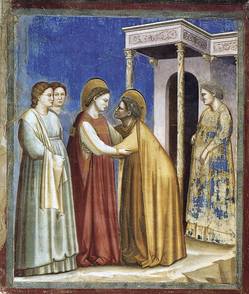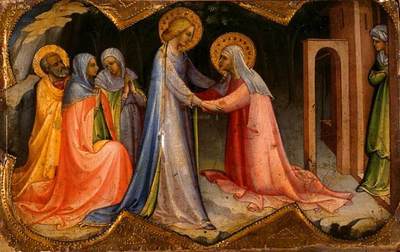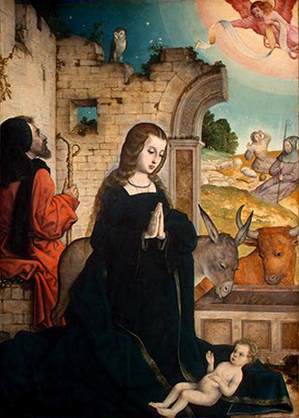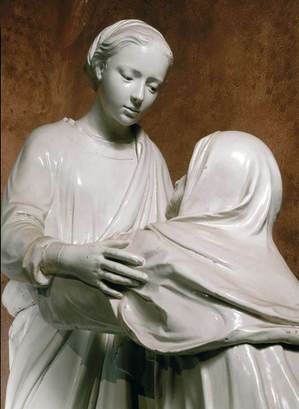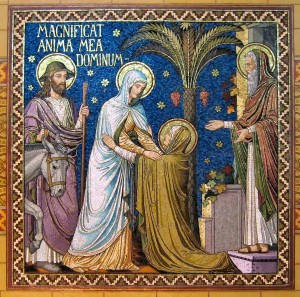 The feast of the Visitation fell on Trinity Sunday, the feast is transferred in many places to today. The Responsory for the Office reads:
The feast of the Visitation fell on Trinity Sunday, the feast is transferred in many places to today. The Responsory for the Office reads:
Elizabeth was filled with the Holy Spirit and cried out:
Blessed are you among women, and blessed is the fruit of your womb.
— and who am I that the mother of my Lord should come to me?
For when your greeting sounded in my ears, the baby in my womb leaped for joy.
— and who am I that the mother of my Lord should come to me?
Saint Bede points us to the importance of Mary and the model of the Christian she is.
“My soul proclaims the greatness of the Lord, and my spirit rejoices in God my saviour.” With these words Mary first acknowledges the special gifts she has been given. Then she recalls God’s universal favours, bestowed unceasingly on the human race.
When a man devotes all his thoughts to the praise and service of the Lord, he proclaims God’s greatness. His observance of God’s commands, moreover, shows that he has God’s power and greatness always at heart. His spirit rejoices in God his saviour and delights in the mere recollection of his creator who gives him hope for eternal salvation.
These words are often for all God’s creations, but especially for the Mother of God. She alone was chosen, and she burned with spiritual love for the son she so joyously conceived. Above all other saints, she alone could truly rejoice in Jesus, her saviour, for she knew that he who was the source of eternal salvation would be born in time in her body, in one person both her own son and her Lord.
“For the Almighty has done great things for me, and holy is his name.” Mary attributes nothing to her own merits. She refers all her greatness to the gift of the one whose essence is power and whose nature is greatness, for he fills with greatness and strength the small and the weak who believe in him.
She did well to add: “and holy is his name,” to warn those who heard, and indeed all who would receive his words, that they must believe and call upon his name. For they too could share in everlasting holiness and true salvation according to the words of the prophet: “and it will come to pass, that everyone who calls on the name of the Lord will be saved.” This is the name she spoke of earlier: “and my spirit rejoices in God my saviour.”
Therefore it is an excellent and fruitful custom of holy Church that we should sing Mary’s hymn at the time of evening prayer. By meditating upon the incarnation, our devotion is kindled, and by remembering the example of God’s Mother, we are encouraged to lead a life of virtue. Such virtues are best achieved in the evening. We are weary after the day’s work and worn out by our distractions. The time for rest is near, and our minds are ready for contemplation.
A sermon by St Bede the Venerable
Let us pray for the Visitation Order.
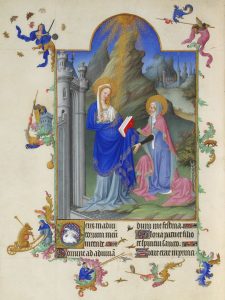 Today we celebrate the Feast of the Visitation of the Blessed Virgin Mary. It is the in-breaking of God’s joy in history.
Today we celebrate the Feast of the Visitation of the Blessed Virgin Mary. It is the in-breaking of God’s joy in history.

